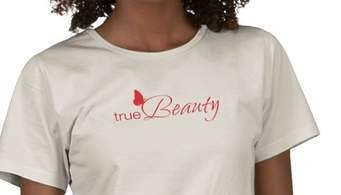514.223.5327
MAKE AN APPOINTMENTBody Image
Grab a piece of paper and take note at how often you answer yes to the following questions.
- I have struggled with my weight for years
- I am very concerned about my weight
- I am critical of my body
- I tend to laugh off compliments about my body
- I am very concerned about parts of my body that are either inadequate or too adequate
- I am uncomfortable in social situations where I feel I am being watched
- I hate to wear a bathing suit in public
- I am uncomfortable eating in public
- I don’t like my partner to see me naked
- I don’t like to see me naked
- I feel ashamed of my body
- I seek refuge under the sheets during lovemaking
- I compare myself mentally to visual images of “ideal” women or men
- I often tell myself that I’ll take control again in the morning and attempt to diet
- I want to lose a prescribed amount of weight before I go on vacation, a wedding, or go back home
- When my partner tells me they love me just the way I am, I wonder what they could possibly mean.
What is Body Image?
Body Image is made up of 2 components:
- How you perceive your body
- How you feel about that perception
How we perceive our body is pretty consistent over time even though we all experience rough days & better days. In general, we tend to be more critical than loving of our bodies. We all know someone who we think looks great and then hear them complain about body parts that he or she dislikes.
Our emotions are an important part of body image. There are many people who are perceived as attractive by others but who feel negatively about themselves. Conversely, a person may be overweight and feel great in their body.
The combination of what you see and how you feel about it can range from positive to negative. Our degree of satisfaction and dissatisfaction can vary on a continuum from Body Ownership & Acceptance to Body Hate.
As you read the following list, circle the statements that apply to you.
Body Ownership
- Body Image is not an issue for me
- My body is beautiful to me
- Society’s concept of a beautiful body does not influence how I feel about my body
- I appreciate various aspects about my body, such as shape, function, flexibility
- I know that significant others in my life appreciate my body and appearance
Body Acceptance
- I feed my body well so that it is strong and healthy
- My body image is based on social norms & my own self concept
- My body and appearance are important to me but I spend only a small part of my day thinking about them
- My self esteem is not based on how my body looks
Body Obsessed
- I have days when I feel fat and unattractive
- I spend a significant amount of time looking at my body in the mirror
- I am preoccupied with my body and appearance
- I regularly compare my body to others
- I am influenced by and accept the societal norms for the ideal body
- I would be more attractive if I were thinner or more muscular
Distorted Body Image
- I spend a significant amount of time trying to change my body through exercising or dieting
- My body image and appearance has interfered with my social activities such as dating or going out with friends
- I have considered changing my body shape or have changed it through surgery
- I wish I could change the way I look
Body Hate
- Often my body feels as though it doesn’t belong to me but to someone else
- When other people tell me I look okay I don’t believe them
- I hate the way I look
- I often isolate myself from others because I hate my body
- I don’t see anything positive or even neutral about my body
- I don’t feel comfortable in my body
Ownership Acceptance Obsessed Distorted Hate
The category in which you have circled the most statements will indicate where you fall on this continuum. Consider this along with how you answered the initial quiz. If you answered yes more than 4 times you are struggling with your body image. Obviously, the higher your “yes” score the bigger the problem and the further down this continuum you likely are. For those of you who scored 9 or higher or see yourself in the more problematic categories on the continuum it may be affecting you mood, your relationships and your activities. You could benefit a great deal by talking to a professional and working with them to make changes in how you feel about you.
Written by: Shawna Atkins, Ph.D., OPQ

